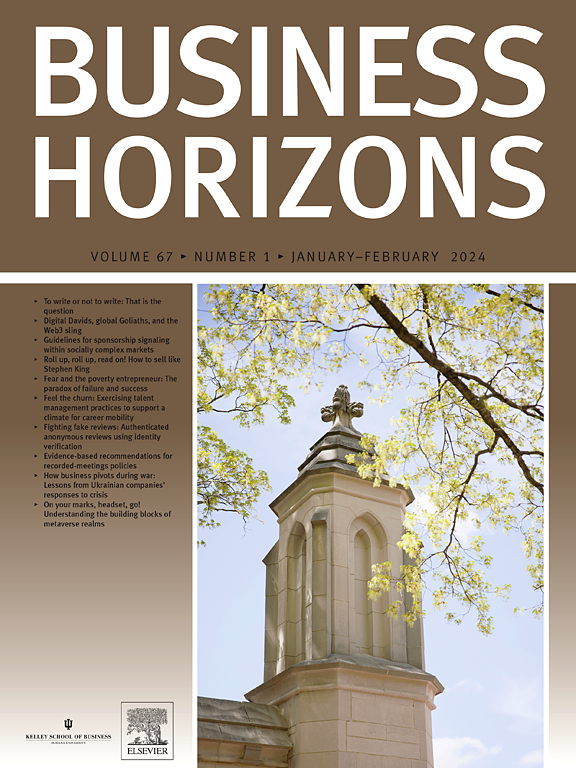The diminishing halo effect: Celebrities and negative events in marketing
IF 7
3区 管理学
Q1 BUSINESS
引用次数: 0
Abstract
Celebrities have long been utilized by brands to enhance their products and services, with the underlying assumption that the celebrity’s positive attributes and public image would transfer a halo effect to the endorsed products. However, recent years have witnessed a paradigm shift in this phenomenon, marked by a growing number of negative marketing events involving celebrities. We identify several key themes, including consumer attributions, psychological processes, social media amplification, consumer empowerment, and cultural shifts. Each contributes to a holistic understanding of why and how negative events involving celebrities can lead to a diminishing halo effect. Depending on whether consumers attribute the event internally or externally, their response can vary and, subsequently, affect the celebrity’s halo effect. Overlaying attribution theory provides deeper insights into the dynamics of consumer perception and response in the context of negative events in marketing. Understanding how consumers attribute causality to negative events and the psychological mechanisms that underpin their responses provides valuable insights for celebrities, brands, and marketers navigating the challenges of the digital age.
光环效应减弱:营销中的名人和负面事件
长期以来,品牌一直利用名人来提升其产品和服务,并认为名人的积极属性和公众形象会给代言产品带来光环效应。然而,近年来,这一现象发生了范式转变,涉及名人的负面营销事件越来越多。我们确定了几个关键主题,包括消费者归因、心理过程、社交媒体放大、消费者赋权和文化转变。每一个都有助于全面理解涉及名人的负面事件为什么以及如何导致光环效应减弱。根据消费者将事件归因于内部还是外部,他们的反应可能会有所不同,并随后影响名人的光环效应。叠加归因理论提供了更深入的洞察到消费者感知和反应的动态在营销中的负面事件的背景下。了解消费者如何将负面事件归因于因果关系,以及支撑他们反应的心理机制,可以为名人、品牌和营销人员提供有价值的见解,帮助他们应对数字时代的挑战。
本文章由计算机程序翻译,如有差异,请以英文原文为准。
求助全文
约1分钟内获得全文
求助全文
来源期刊

Business Horizons
BUSINESS-
CiteScore
17.70
自引率
5.40%
发文量
105
期刊介绍:
Business Horizons, the bimonthly journal of the Kelley School of Business at Indiana University, is dedicated to publishing original articles that appeal to both business academics and practitioners. Our editorial focus is on covering a diverse array of topics within the broader field of business, with a particular emphasis on identifying critical business issues and proposing practical solutions. Our goal is to inspire readers to approach business practices from new and innovative perspectives. Business Horizons occupies a distinctive position among business publications by offering articles that strike a balance between academic rigor and practical relevance. As such, our articles are grounded in scholarly research yet presented in a clear and accessible format, making them relevant to a broad audience within the business community.
 求助内容:
求助内容: 应助结果提醒方式:
应助结果提醒方式:


